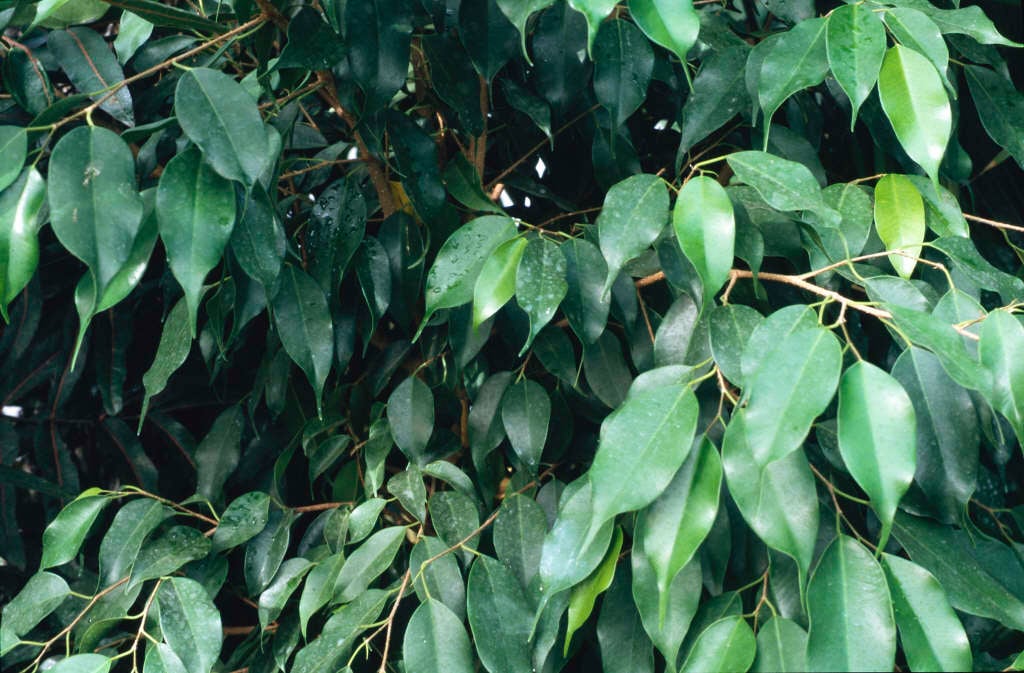Ficus benjamina
weeping fig
An evergreen shrub or tree to 3m or more, with pendulous branches bearing glossy, slender-pointed ovate leaves to 12cm in length. Flowers insignificant, followed by reddish-orange fruits 1cm in length, becoming black
Other common names
Benjamin treeJava fig
see moreJava tree
small-leaved rubber plant
tropic laurel
waringin
Synonyms
Ficus nitidaSize
Ultimate height
2.5–4 metresTime to ultimate height
10–20 yearsUltimate spread
1.5–2.5 metresGrowing conditions
Moisture
Moist but well–drainedpH
Acid, Alkaline, NeutralColour & scent
| Stem | Flower | Foliage | Fruit | |
| Spring | Green | |||
|---|---|---|---|---|
| Summer | Green | Green | ||
| Autumn | Green | Black Orange Red | ||
| Winter | Green |
Position
- Full sun
Aspect
South–facing or West–facing
Exposure
Sheltered Hardiness
H1CBotanical details
- Family
- Moraceae
- Native to GB / Ireland
- No
- Foliage
- Evergreen
- Habit
- Bushy
- Potentially harmful
- Humans/Pets (dogs): Skin allergen, harmful if eaten. For further information and contact numbers regarding pets, see the HTA guide to potentially harmful plants
- Genus
Ficus can be evergreen or deciduous trees, shrubs or climbers, with often leathery, simple, entire or lobed leaves and tiny flowers borne within a hollow receptacle which enlarges to form the fruit
- Name status
Correct
- Plant range
- S & SE Asia through Malesia to N Australia & SW Pacific
How to grow
Cultivation
Grow outdoors in humus-rich moist but well-drained soil in full sun or partial shade with protection from wind in a frost-free area. Grow under glass in peat-free, loam-based compost in full or filtered light. See ornamental fig cultivation for more advice
Propagation
Propagate by seed, leaf-bud or semi-hardwood cuttings
Suggested planting locations and garden types
- Patio and container plants
- Low Maintenance
Pruning
Pests
May be susceptible to glasshouse red spider mite, thrips, mealybugs and scale insects under glass
Diseases
May be susceptible to honey fungus
Get involved
The Royal Horticultural Society is the UK’s leading gardening charity. We aim to enrich everyone’s life through plants, and make the UK a greener and more beautiful place.
